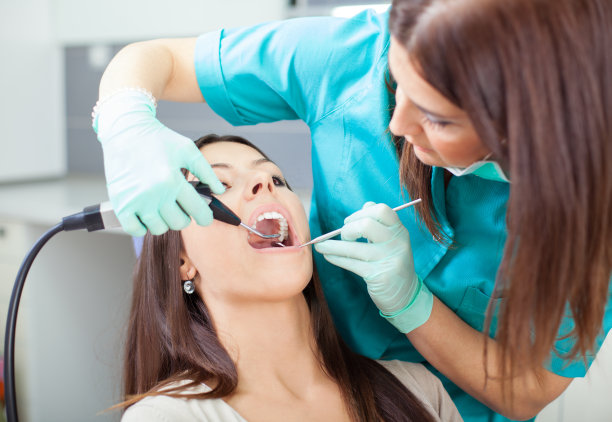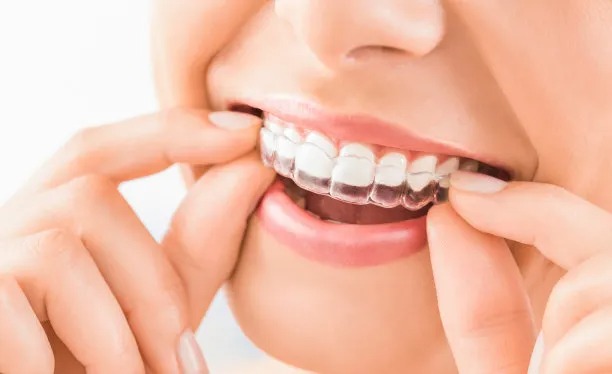Summary: Dental health is a crucial aspect of overall wellbeing, often overlooked until issues arise. One significant preventive measure is tooth extraction, which is sometimes necessary for maintaining oral hygiene. This article discusses the importance of extracting a tooth in various contexts, highlighting its effect on dental health, preventing further complications, enhancing overall wellbeing, and the role of proactive dental care. Moreover, it emphasizes that timely extraction can contribute positively to one’s health journey. Through these discussions, the piece aims to inform readers about the profound implications of tooth extraction on both dental health and general wellbeing.
1. Maintaining Optimal Dental Health

The maintenance of optimal dental health is paramount to preventing oral diseases. When a tooth is severely decayed or damaged, extracting it can prevent the spread of infection to surrounding teeth and gums. By removing problem teeth, dental professionals can stop further decay and preserve the integrity of adjacent teeth, ensuring that patients maintain a healthy mouth.
Additionally, compromised teeth often lead to dental crowding, which can result in misalignment. A tooth extraction may be a necessary step to create sufficient space for proper alignment of other teeth. This space can allow orthodontic treatments, such as braces, to work effectively, leading to improved oral health in the long run.
Moreover, early identification of problematic teeth and subsequent extraction can significantly reduce the likelihood of developing more complex dental issues. Regular dental check-ups can help practitioners monitor oral health closely, providing opportunities to intervene before escalation becomes necessary.
2. Preventing Future Complications
Tooth extractions play a vital role in preventing future complications. When a tooth is infected, it can lead to severe pain and may require extensive treatments, such as root canals or crowns. Extracting the problematic tooth early can minimize the need for these invasive procedures, saving both time and money for patients.
Additionally, untreated dental issues can lead to more serious health problems. For instance, an untreated abscessed tooth can cause systemic infections that might impact other areas of the body, including the heart. By promptly removing an infected tooth, patients reduce the risk of life-threatening complications arising from infections.
Lastly, tooth extraction can help in managing gum disease. When advanced gum disease is present, and it contributes to loose or diseased teeth, extraction may be necessary. This action can pave the way for a healthier gum environment, allowing the remaining teeth to thrive without the burden of additional dental issues.
3. Enhancing Overall Wellbeing
Taking care of dental health is not just about preventing oral diseases; it significantly impacts overall wellbeing. Individuals suffering from dental pain often experience emotional distress, affecting their quality of life. By addressing these issues through tooth extraction, patients can alleviate pain and discomfort, leading to improved mental and emotional health.
Furthermore, a healthy smile enhances social interactions and self-esteem. Many individuals with dental issues or ill-fitting teeth may feel embarrassed to smile. Tooth extraction can resolve these concerns, allowing individuals to regain confidence in their appearance and social interactions.
The psychological benefits extend beyond improved self-image. With a focus on preventive care and dental health, individuals are empowered to make informed health choices, leading to better lifestyle habits that contribute positively to overall health. Regular oral hygiene, combined with responsible dental care including timely tooth extractions, can foster a proactive approach to health.
4. Promoting Proactive Dental Care
Proactive dental care is essential for ensuring long-lasting oral health. Regular dental visits allow for comprehensive assessments of dental conditions, where practitioners can recommend extractions when necessary. By making dentists a part of their healthcare routine, individuals can take charge of their dental health.
Education about the importance of preventive care and the role of tooth extraction can help patients make informed decisions. Understanding that the extraction of a tooth is sometimes essential allows patients to approach dental visits with confidence, knowing that their overall health is being prioritized.
Additionally, promoting a culture of proactive dental care can lead to early intervention strategies. Community outreach programs targeting awareness about dental health can encourage individuals to seek care before issues escalate into more significant problems requiring extraction. By fostering such practices, we can create a society that values and prioritizes oral health.
Summary:
The importance of tooth extraction in maintaining dental health cannot be overstated. It serves not only to safeguard dental integrity but also prevents future complications, enhances the quality of life, and strengthens proactive health measures. Individuals are encouraged to engage with their dental care providers, making informed decisions that bolster both dental and overall wellbeing.
This article is compiled by Vickong Dental and the content is for reference only.
Vickong Dental
Vickong Dental is a large medical group established in Hong Kong in 2008 by professors from well-known medical universities in Guangdong and Hong Kong, as well as medical doctors from key national '985' universities (including Master's supervisors and senior professors). The chain of branches brings together expert dentists with PhDs and Master's degrees from Hong Kong and Mainland China, committed to providing high-quality dental treatment.
"Vickong Dental Practices the University Motto of 'Healing and Serving Society,' with a Stable Operation for Sixteen Years. It Has Been honored with Hong Kong Enterprise Leaders's Choice,' and is a Global Trusted Implant Center for the Nobel Implant System. Recommended by Hong Kong Metro Broadcast and Guangdong Television, it Serves Customers from Over Thirty Countries and Regions, Gaining the Trust and Favor of Citizens from the Guangdong-Hong Kong-Macau Greater Bay Area and Surrounding Cities.

Thousands of customers' unanimous praise
The most recognized and highly recommended dental service by customers in the Guangdong-Hong Kong-Macau Greater Bay Area
We Ensure You Receive Detailed Care and Attention Here
Hong Kong standards, Shenzhen prices, Your Trusted English-speaking dentists

Vickong Dental Medical-Grade Instrument Disinfection Process
Vickong Dental Medical-Grade Instrument Disinfection Process

Vickong Dental Chain: A Warm and Comfortable Environment for Treatment






Appointment Hours

Q&A
Why choose Vickong Dental?
Vickong Dental practices the university motto 「Medicine to Benefit Society」, with each branch bringing together highly qualified dentists with doctoral and master’s degrees from Hong Kong and the Mainland, and has maintained seventeen years of steady operation。Recipient of 「2024 Hong Kong Enterprise Leaders Brand」, 「2025 Hong Kong Enterprise Leaders Brand」, a Nobel Biocare Global Trusted Implant Center, and a brand recommended by Metro Radio Hong Kong and Guangdong TV。
To date, we have served customers from more than thirty countries and regions,earning exceptionally high word-of-mouth recognition and trusted recommendations from residents across the Guangdong-Hong Kong-Macao Greater Bay Area and surrounding cities
We have eight major branches in Zhuhai、Shenzhen,and a consultation and service assurance center in Hong Kong,so you can book a free consultation at any time for any questions,which is very reassuring.
If I do not accept the quotation after the CT scan, will I be charged??
No! As long as the actual treatment has not started, you will not be charged any fees.
Will there be any additional charges during the treatment process?
No, there won’t be any additional charges. Before treatment begins, we will clearly explain the treatment plan and its corresponding fees. Only after the patient agrees and signs the consent form will we proceed with the dental service.
Can I pay in Hong Kong dollars?
Yes. Vickong Dental accepts payment in Hong Kong dollars. The amount will be converted based on the exchange rate of the day, and the applicable rate will be clearly communicated to you in advance.
Can I reschedule my appointment at any time?
Yes. Please contact us via **WeChat** or **WhatsApp** as early as possible, providing your original appointment time and details, along with your preferred new date and time slot for rescheduling.













